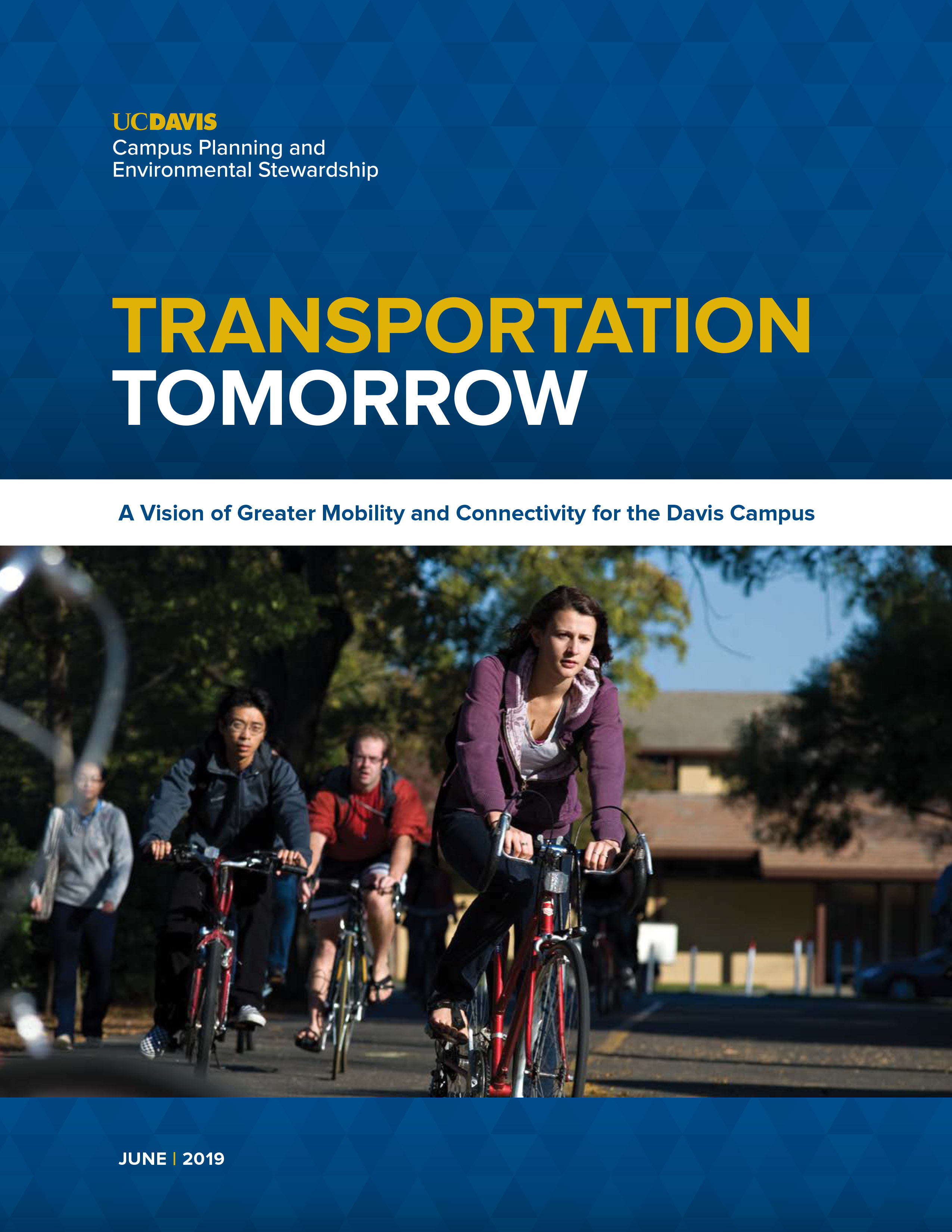Transportation Planning
Sustainable Transportation Planning Study
 Transportation Services, with a consulting team, conducted a two-year planning study charting a new way towards a more sustainable future. The report — Transportation Tomorrow — summarizes this effort and the resulting top ten recommendations.
Transportation Services, with a consulting team, conducted a two-year planning study charting a new way towards a more sustainable future. The report — Transportation Tomorrow — summarizes this effort and the resulting top ten recommendations.
The Office of Campus Planning is responsible for the comprehensive planning for and stewardship of the University transportation network and associated infrastructure, to ensure that the built environment fosters more sustainable transportation choices for the campus community.
Transportation Planning works in close partnership with colleagues within CPES (particularly Campus Planners, Landscape Architects, and Transportation Services), other units across campus, and the greater community to advance sustainable and equitable mobility systems, as we make the physical and cultural investments in sustainable mobility as outlined in the 2018 Long Range Development Plan (LRDP).
Central to this work is the realization of Transportation Tomorrow, the forward-looking Transportation Demand Management (TDM) plan that doubles down on our legacy of sustainable transportation to move toward an even more sustainable future. The campus of tomorrow invests further in infrastructure for pedestrians and cyclists, and anticipates the role changing mobility technology is having on how we use and move through our campus public realm.
Staff responsibilities:
- Mobility Network Oversight: Directing the articulation of and improvements to all elements of the transportation network.
- Investment Strategy: Leading efforts to inventory, analyze, and prioritize investment for improvements, and articulating transportation planning objectives
- Conceptual design: Developing initial design concepts for multi-modal improvements, including visual communication materials for the overall vision and specific improvements, and subsequently guiding project definition and review for transportation related elements of all campus projects
- Asset Management: Directing a maintenance program for the campus transportation infrastructure system, including multi-year improvement plans, and working closely with campus partners to coordinate physical and programmatic improvements
- Project coordination: Coordinating with other administrative offices to communicate campus transportation priorities and plans and set clear expectations for the contributions of individual projects
- Detour Program: Deploying a program for detour approval permits to minimize disruption and create continuity, predictability, and close coordination between construction activities
- Engagement: Building partnerships across campus to leverage other improvement projects as opportunities for implementing key components of the campus mobility network; Advocating for a seamless and equitable mobility system; and building capacity for innovative improvements
- Partnerships: Working closely with research institutes, private vendors, non-profit organizations, transit agencies, and other entities involved in planning and stewardship of transportation networks and services; Seeking external funding in the form of grants and other awards to leverage campus funds
